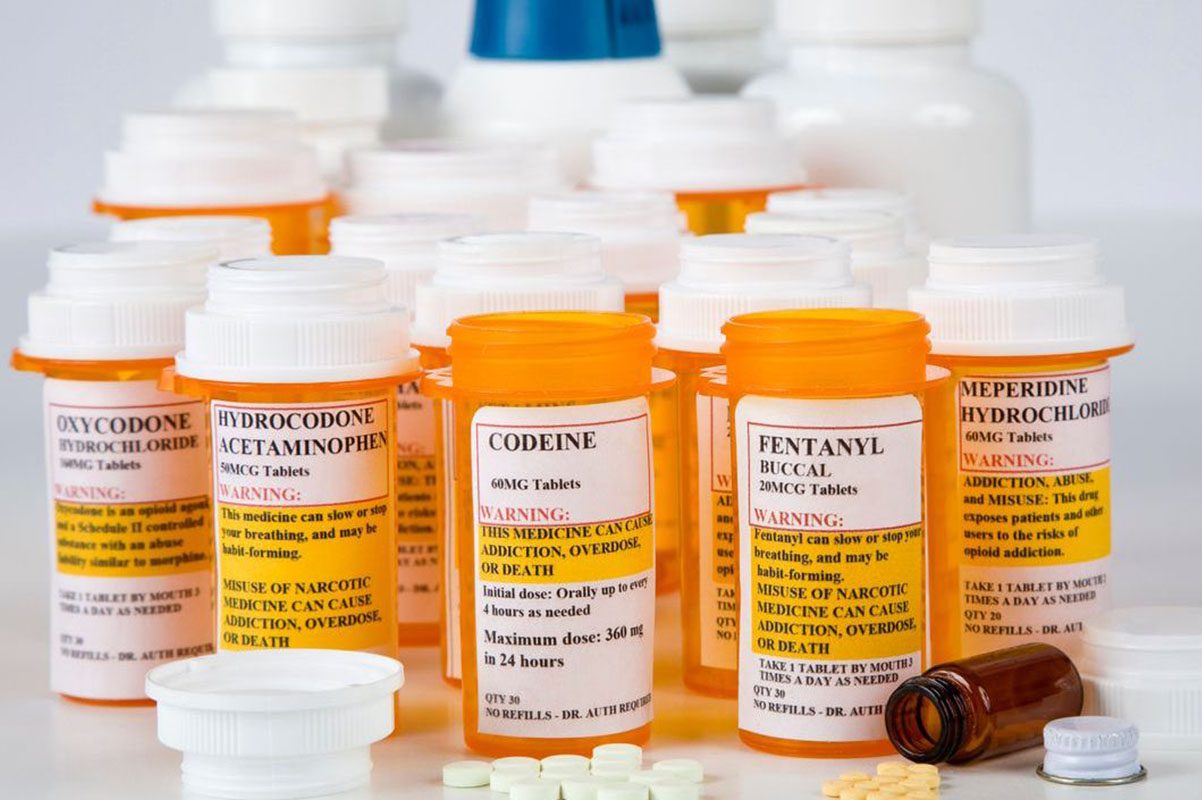Perinatal mental health, or perinatal psychiatry, encompasses mental health conditions that affect pregnancy or the 12 months following delivery.1,2 While most pregnant patients identify as cisgender women—ie, those who are assigned female sex at birth and identify as women—they may also be transgender men or nonbinary people—ie, people who have reproductive capacity that enables gestational pregnancy and do not identify as women.3 There is a relative dearth of research on pregnancy in transgender and gender diverse (TGD) patients, although studies posit that more TGD people have pursued parenting goals in recent years.4 Additionally, TGD young adults appear to be at least as likely as cisgender young adults to have teenage or unintended pregnancies.5,6 This article aims to address considerations for providing perinatal psychiatric care to TGD patients.
Psychopharmacological Considerations
Broadly speaking, psychopharmacological considerations in pregnancy do not substantially differ in patients across gender identities. As safety considerations have been discussed considerably in prior literature,7,8 we will refrain from reviewing these here. With regard to initiation of psychotropics during pregnancy, guidelines recommend an individualized approach that weighs risks and benefits, for cisgender and TGD patients alike. As is the case with any person who may become pregnant during the course of their treatment, selection of psychotropics should include considerations of risks of exposure during a pregnancy, planned or unplanned.
Other medication considerations important for patients pursuing gender-affirming hormones pertain to testosterone, which is a known teratogen in utero that should not be continued in pregnancy.9 Testosterone itself is not an effective form of birth control, as it does not reliably stop ovulation. This common misconception may place some patients at higher risk of unwanted pregnancies.10 Recommendations discourage reinitiating testosterone until after completing chestfeeding, as it may suppress lactation.4,9 While psychiatrists typically do not directly manage gender-affirming hormones, it is important to discuss expectations with TGD patients interested in conceiving, to prepare for the psychosocial impact of withdrawing or delaying initiation of gender-affirming care.
In studies11 of pregnancy among TGD patients, some have reported discomfort around disclosing both their gender identity and pregnancy to clinicians at the same time out of fear of discrimination, resulting in missed opportunities to discuss pregnancy-specific risks of psychiatric medications. This fear may be particularly relevant in our current political climate, where discourse hostile to TGD patients is commonplace. As such, it is important for all clinicians to create a therapeutic environment that is affirming of patients—for instance, by consistently inquiring about gender identity during initial intakes, which communicates a clinicians’ openness to discussing gender diversity.
Psychosocial Considerations
Isolation and community. A common theme in literature12 on pregnancy in TGD patients is social isolation. Many TGD patients note loneliness arising from feeling like the “first,” or not knowing other TGD people who have been pregnant.11,13,14 While research in TGD communities is sparse, studies15 have shown that isolation among cisgender women is associated with postpartum depression. Notably, TGD people who are able to stay connected to their communities cite this as a source of resilience in their pregnancy journey.11 Psychiatrists caring for pregnant TGD patients can guide them in navigating interpersonal challenges, in order to strengthen their existing supports while also helping these patients access TGD communities by offering information about pregnancy or parenting support groups specifically for TGD people.13
Experiences of the body. Gender dysphoria refers to psychological distress that results from an incongruence between one’s sex assigned at birth and one’s gender identity. For TGD patients, gender identity and pregnancy may be at odds with one another. For example, some patients referred to themselves as “being my own surrogate” while pregnant.3 TGD patients may experience a loss of bodily autonomy related to physical changes that occur during pregnancy, such as chest growth or stopping gender-affirming hormones: this distress is often worsened by a lack of information, such as inadequate counseling that their chest could grow after top surgery and could require additional surgical intervention to reverse.11,16,17 Patients note that helpful coping strategies included reminders that some of these changes may be temporary, along with holding on to certain aspects of their gender that could remain constant throughout pregnancy, such as social gender expression.3,16,17
Gender dysphoria among TGD pregnant patients is not universal. Some TGD people described pregnancy as a healing process, which not only solidifies their identity but also helps them strengthen the relationship to their body.3 Some view the changes in their body as meaningful, in serving the purpose of growing a new life, which mitigates potential dysphoria.11
Notably, many TGD people who feel positively about being pregnant and giving birth still struggle with increased misgendering and hostility from others.11,15
Structural Considerations
Major drivers of TGD patients’ experience in pregnancy are structural forces, which play a role from preconception to well after delivery. Structural forces include the effects of anti-TGD stigma and inadequate educational or institutional attention focused on its needs.13
Discrimination and transphobia. Throughout the preconception and gestational period, systemic cissexism and transphobia can be significant challenges.4,11,13 Disparities in health outcomes are often attributed to such minority stress, or stress caused by both implicit and explicit experiences of prejudice and marginalization: this may worsen as anti-TGD legislation has proliferated in recent years.12 Providers are often inexperienced in counseling TGD pregnant patients, thus placing the burden of education on the patient, or treating patients as outside of the norm.13
One study15 has posited that approximately one-third of patients in the United States experience a traumatic birth, which can exacerbate subsequent mental health challenges. For TGD patients, a baseline hypervigilance related to discrimination and transphobia in health care may increase due to the physical and emotional vulnerability of childbirth.11,12 TGD people are disproportionally affected by violence and trauma, and as such may be particularly vulnerable to postpartum posttraumatic stress disorder.15 Psychiatrists should remain conscious of the systemic discrimination that TGD patients frequently encounter in pregnancy and work with other clinicians to bolster protective factors or advocate for their patients during this vulnerable period. Closely following up with patients after delivery may offer additional support.
Disclosure and invisibility. For TGD patients, a pivotal decision is necessary regarding whether to disclose gender identity, pregnancy, both, or neither. Some opt to present publicly as cisgender women during their pregnancy in order to limit the possibility of hostility, however this identity concealment may also heighten dysphoria.9,11,13 Others present in a way that aligns with their gender identity and expression but opt to hide their pregnancy socially: this approach may limit the availability of pregnancy-related social supports and resources.11,13 While validating TGD patients’ ultimate choices around disclosure, psychiatrists may help patients brainstorm opportunities to optimize both safety and affirmation.
TGD patients frequently report a sense of being invisible in health care settings, as medical systems for pregnancy are typically designed for only cisgender women. Many TGD people experience electronic health record challenges if they have undergone gender affirmation, including difficulty being admitted to labor and delivery floors.4,18 In psychiatric care settings, few TGD patients receive adequate counseling on postpartum depression; many note a lack of gender-inclusive resources for perinatal mental health, such as “women only” support groups.14,16 When encountering mood changes, patients may struggle to identify what they are experiencing: is it depression, “normal” hormonal fluctuations, or exacerbated dysphoria due to bodily changes or to not resuming their preconception gender-affirming hormones?4,13 A strong psychotherapeutic relationship with a curious and affirming mental health care practitioner can help patients cope with their psychiatric symptoms and transition to their new role as parents.
Conclusion
Experiences of pregnancy among TGD people are varied, including deeply transformative and fulfilling milestones, as well as obstacles related to health care discrimination and lack of resources. While psychiatric care for TGD people is thus often highly individualized, some general principles exist. Additional research is vital to appropriately characterize disparities in mental health for TGD people in pregnancy, particularly as TGD patients face additional hostility and barriers to care as a result of recently intensified anti-TGD governmental action.
Clinicians can consider standardizing their intake questions to consistently query patients about their gender identity, regardless of their gender expression or sex assigned at birth. Genuine mistakes related to misgendering or misnaming may occur, and a clinician’s nondefensive openness to being corrected is vital to maintaining therapeutic alliance. There are regional and local variations in resources available for TGD people: we recommend psychiatrists become familiar with local LGBTQIA+ community centers, clinics, and advocacy groups as important sources of information for their patients. Mental health practices can focus on developing gender-inclusive resources, such as all-gender postpartum support groups and pamphlets. We further recommend clinicians remain up-to-date on clinical research regarding TGD patients and seek out narratives directly from TGD people, such as essays, books, and films, to continually counter their own internalized biases and enrich their understanding of TGD experience.
Postpartum support resource for queer and transgender parents (Postpartum Support International Services and HotLine) can be found at https://postpartum.net/get-help/queer-parents/.
Article Information
Published Online: November 10, 2025. https://doi.org/10.4088/JCP.25com15907
© 2025 Physicians Postgraduate Press, Inc.
J Clin Psychiatry 2026;87(1):25com15907
Submitted: April 12, 2025; accepted September 22, 2025.
To Cite: Kamceva M, Pendse RS, Keuroghlian A. Gender-affirming perinatal psychiatry for transgender and gender diverse people. J Clin Psychiatry 2026;87(1):25com15907.
Author Affiliations: Massachusetts General Hospital/ McLean Hospital Psychiatry Residency, Boston, Massachusetts (Kamceva); Department of Obstetrics and Gynecology and Women’s Health, Montefiore Medical Center, Albert Einstein College of Medicine, New York, New York (Pendse); Public and Community Psychiatry, Massachusetts General Hospital, Boston, Massachusetts (Keuroghlian).
Corresponding Author: Marija Kamceva, MD, Massachusetts General Hospital, 55 Fruit St, Boston, MA 02114 ([email protected]).
Relevant Financial Relationships: Dr Keuroghlian reports royalties as editor of a McGraw Hill textbook on transgender and gender diverse health care and editor of an American Psychiatric Association textbook on gender-affirming psychiatric care.
Funding/Support: None.
ORCID: Marija Kamceva: https://orcid.org/0000-0002-2664-2162; Ruchita S. Pendse: https://orcid.org/0000-0003-1393-0656; Alex Keuroghlian: https://orcid.org/0000-0002-6624-8354
References (18)

- O’Hara MW, Wisner KL. Perinatal mental illness: definition, description and aetiology. Best Pract Res Clin Obstet Gynaecol. 2014;28(1):3–12. PubMed
- Wisner K. Gender identity: a brief for perinatal nurses. MCN Am J Matern Nurs. 2018;43(5):291–291. PubMed CrossRef
- Ellis SA, Wojnar DM, Pettinato M. Conception, pregnancy, and birth experiences of male and gender variant gestational parents: it’s how we could have a family. J Midwifery Womens Health. 2015;60(1):62–69. PubMed CrossRef
- Kukura E. Reconceiving reproductive health systems: caring for trans, nonbinary, and gender-expansive people during pregnancy and childbirth. J L Med Ethics. 2022;50(3):471–488. PubMed CrossRef
- Charlton BM, Reynolds CA, Tabaac AR, et al. Unintended and teen pregnancy experiences of trans masculine people living in the United States. Int J Transgender Health. 2021;22(1-2):65–76. PubMed CrossRef
- Veale J, Watson RJ, Adjei J, et al. Prevalence of pregnancy involvement among Canadian transgender youth and its relation to mental health, sexual health, and gender identity. Int J Transgenderism. 2016;17(3-4):107–113. PubMed CrossRef
- Treatment and Management of Mental Health Conditions During Pregnancy and Postpartum: ACOG Clinical Practice Guideline No. 5. Obstetrics Gynecol. 2023;141(6):1262–1288.
- Howard LM, Khalifeh H. Perinatal mental health: a review of progress and challenges. World Psychiatry. 2020;19(3):313–327. PubMed CrossRef
- de Castro-Peraza ME, García-Acosta JM, Delgado Rodriguez N, et al. Biological, psychological, social, and legal aspects of Trans parenthood based on a real case—A literature review. Int J Environ Res Public Health. 2019;16(6):925. PubMed CrossRef
- Obedin-Maliver J, Makadon HJ. Transgender men and pregnancy. Obstet Med. 2016;9(1):4–8. PubMed CrossRef
- Besse M, Lampe NM, Mann ES. Experiences with achieving pregnancy and giving birth among transgender men: a narrative literature review. Yale J Biol Med. 2020;93:517–528. PubMed
- Malmquist A, Jonsson L, Wikström J, et al. Minority stress adds an additional layer to fear of childbirth in lesbian and bisexual women, and transgender people. Midwifery. 2019;79:102551. PubMed CrossRef
- Hoffkling A, Obedin-Maliver J, Sevelius J. From erasure to opportunity: a qualitative study of the experiences of transgender men around pregnancy and recommendations for providers. BMC Pregnancy Childbirth. 2017;17(S2):332. PubMed CrossRef
- Light AD, Obedin-Maliver J, Sevelius JM, et al. Transgender men who experienced pregnancy after female-to-male gender transitioning. Obstet Gynecol. 2014;124(6):1120–1127. PubMed CrossRef
- Greenfield M, Darwin Z. Trans and non-binary pregnancy, traumatic birth, and perinatal mental health: a scoping review. Int J Transgender Health. 2021;22(1-2):203–216. PubMed CrossRef
- Kirubarajan A, Barker LC, Leung S, et al. LGBTQ2S + childbearing individuals and perinatal mental health: a systematic review. BJOG Int J Obstet Gynaecol. 2022;129(10):1630–1643. PubMed CrossRef
- MacDonald T, Noel-Weiss J, West D, et al. Transmasculine individuals’ experiences with lactation, chestfeeding, and gender identity: a qualitative study. BMC Pregnancy Childbirth. 2016;16(1):106. PubMed CrossRef
- Hahn M, Sheran N, Weber S, et al. Providing patient-centered perinatal care for transgender men and gender-diverse individuals: a collaborativemultidisciplinary team approach. Obstet Gynecol. 2019;134(5):959–963. PubMed CrossRef
This PDF is free for all visitors!





